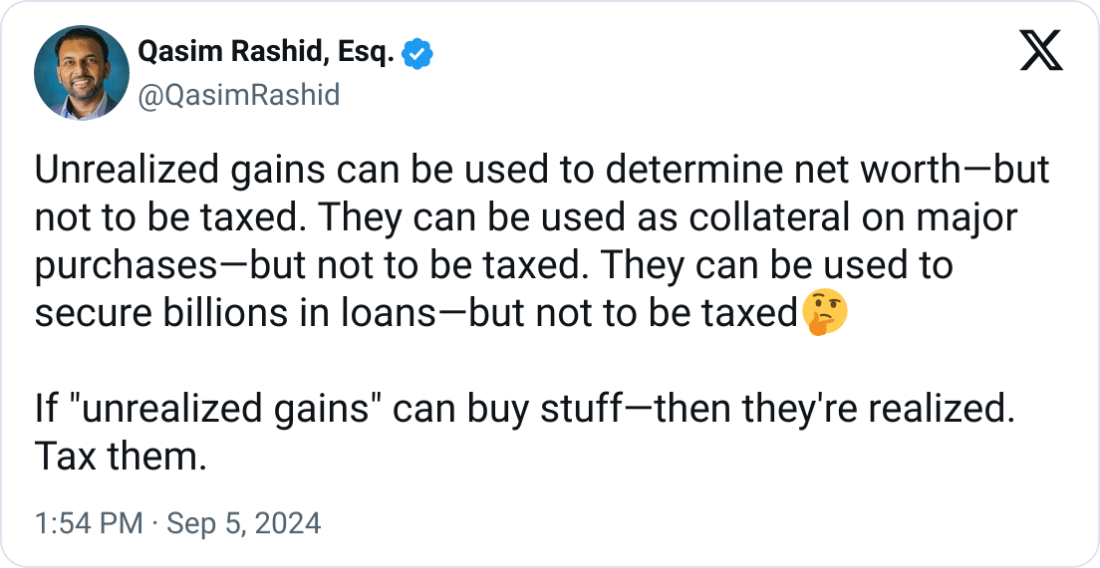this post was submitted on 19 Sep 2024
1601 points (96.8% liked)
Microblog Memes
6206 readers
5121 users here now
A place to share screenshots of Microblog posts, whether from Mastodon, tumblr, ~~Twitter~~ X, KBin, Threads or elsewhere.
Created as an evolution of White People Twitter and other tweet-capture subreddits.
Rules:
- Please put at least one word relevant to the post in the post title.
- Be nice.
- No advertising, brand promotion or guerilla marketing.
- Posters are encouraged to link to the toot or tweet etc in the description of posts.
Related communities:
founded 2 years ago
MODERATORS
you are viewing a single comment's thread
view the rest of the comments
view the rest of the comments

Ok. How much tax do they pay? And later when that stock quadruples and they sell, do they pay again or get a free ride for the extra it's gone up because they've already paid? How many times to they get taxed on it?
I'm not ultra rich, but I have stocks that I've been purchasing for decades. I'll be damned if it's fair that I be taxed on a stock for a company that may go out of business before I ever see any profit. Why do we even assume it will go up? How about we assume it goes down and I get to write that off my taxes now and sort it out later if the assumption is wrong.
You're literally trying to tax people on an imaginary number.
Except they are using it as collateral to accumulate excessive amounts of wealth, essentially replacing their income, tax free.
Which is why the first commenter mentioned the tax should be used on unrealized gains that are used as collateral. Not just the unrealized gains themselves.
Also, yea, when they sell, they pay a tax. Just like everyone else. That is a completely separate instance of wealth accumulation that is unrelated to the wealth accumulated by using those gains as collateral.
Don't like it? Don't buy stock and earn your money through income from a job instead. It's that simple.
Though tbh I think this entire discussion on share and stock is pointless. Profit paid to shareholders is wage that should have been paid to a worker; if you don't perform labor for that company, you shouldn't have any entitlement to the profits made from that company.